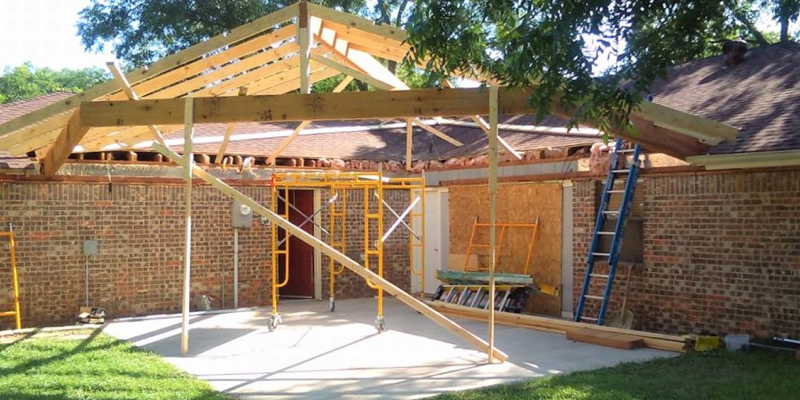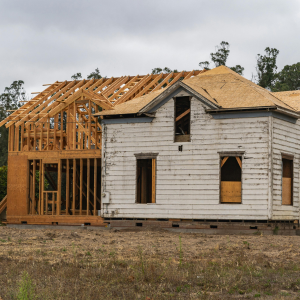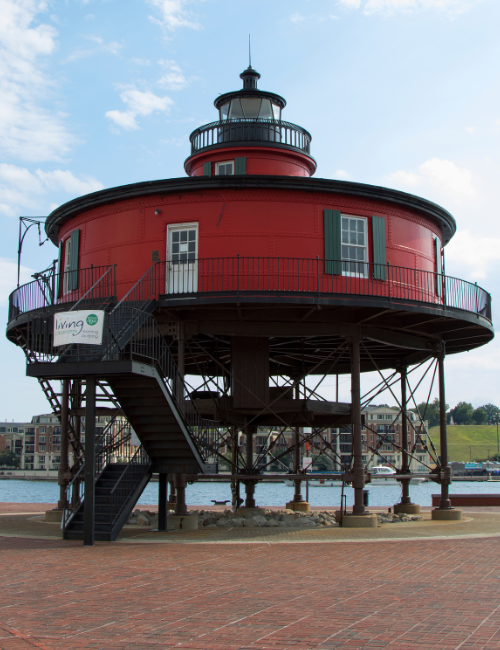
Selling a home with unpermitted work in Baltimore, MD, can be challenging, but CR of Maryland I LLC is here to help. We guide homeowners through local regulations, disclosure requirements, and strategies to address or negotiate unpermitted improvements, ensuring a smooth sale while avoiding potential legal or financial pitfalls.
Understanding Unpermitted Work and Its Implications
Navigating unpermitted work while selling a home in Baltimore, MD, can be daunting, but it becomes manageable with the right insights. Grasping the concept of unpermitted work and its implications for your property is essential. Understanding local building codes and being aware of the possible legal and financial consequences of this work is essential. Moreover, understanding the available solutions for addressing these challenges, such as obtaining retroactive permits, can greatly simplify the selling experience. In this discussion, we will explore the implications of unpermitted work and how it specifically impacts residents in Maryland.
What is Unpermitted Work?
Unpermitted work involves any changes or renovations made to a home without securing the essential building permits mandated by local authorities. This type of work frequently involves modifications to structures, plumbing systems, or electrical setups that lack proper inspection and approval from relevant authorities. In Maryland, as in numerous other states, construction regulations are in place to guarantee safety and adherence to established standards. Disregarding these regulations can result in significant repercussions, including penalties and challenges when selling your home.
Homeowners may choose to undertake renovations without permits to cut costs or because they are not fully aware of the necessary permit regulations. Nonetheless, this may lead to issues later on, especially if an unauthorized change fails to comply with safety regulations or compromises the home’s structural stability. It’s important to understand that even though some homeowners may view minor changes as trivial, any modifications that affect the home’s structure or systems generally necessitate obtaining a building permit. As a result, undertaking these tasks without the necessary permissions can lead to major complications in property transactions.
When assessing unpermitted work, prospective buyers may raise concerns about the quality of workmanship or the safety of the property, which could result in delays or the need for renegotiations during the sale process. Grasping the nature and scope of unpermitted work in your home equips you for improved preparation and decision-making. This awareness ensures you know the essential steps to address these issues and move forward successfully with a sale.
How Unpermitted Work Affects Your Home in Maryland
If you do work on your property in Maryland without permission, it can have a big effect on the sale, especially when you sell. From a financial point of view, modifications that aren’t allowed might lower the value of a home, making it less appealing to buyers who are worried about having to pay for repairs or dealing with legal concerns. If you do work on a property in Baltimore without permission and the work is found during an inspection, you could get fined by the city. It may also be hard to get title insurance if you have unpermitted work done, since it is often a financial and legal risk. Buyers might ask that the work that wasn’t done legally be made legal or taken down completely. These things can cost a lot of money and take a long time.
Legally, selling a home with unpermitted construction that hasn’t been fixed could make the seller responsible for future problems. Maryland law says that sellers have to tell buyers about any problems they know of, even if they weren’t allowed to make changes. If you don’t do this, you could be sued, and the buyer might want money back for repairs or permits that weren’t revealed. Also, if the work that wasn’t allowed is significant or especially dangerous, such as adjustments to the plumbing or electrical system, the resale value could go down.
One way to address these problems is to obtain a retroactive permit, which involves applying for inspection afterward. This approach might work, but there is no guarantee it will be approved. Obtaining these permits may also require costly modifications to bring the building up to current standards. Homeowners who understand the implications of unpermitted construction can take action in advance, making it easier to sell a home. Awareness of and addressing these issues can help you sell your home for cash in Baltimore and other cities without encountering legal or financial problems.
Selling a House in Maryland: Challenges and Opportunities

Selling a home in Maryland comes with its own distinct challenges and opportunities, especially when it involves unpermitted work. Homeowners need to carefully consider local regulations and possible legal consequences to achieve a successful sale. Grasping these intricacies can open up numerous avenues to boost property value and draw in potential buyers. Two essential aspects to consider are the possibility of selling a house with unpermitted work and the legal implications tied to unpermitted modifications. By exploring these aspects, sellers can enhance their preparation and develop strategies for a seamless transaction experience.
Can You Sell a House With Unpermitted Work?
Absolutely, it is feasible to sell a house with unpermitted work in Maryland. However, it necessitates meticulous planning and transparency to adhere to real estate regulations. When selling a home that has undergone unpermitted renovations, being well-prepared is essential. Grasping the extent of unauthorized work on your property and its alignment with local regulations is essential. Prospective buyers frequently seek clarity from sellers, particularly concerning any potential risks linked to unauthorized alterations.
To effectively sell a home, it’s crucial to be transparent about any known issues with potential buyers. This approach will protect sellers from potential disputes down the line and foster confidence among buyers, who might otherwise perceive unauthorized changes as warning signs. Real estate professionals can streamline this process by offering insights on how to showcase these properties clearly. It’s crucial to include comprehensive property listings that highlight any unpermitted work and its possible effects on the sale. Even when offering a property “as-is,” potential buyers will undoubtedly carry out detailed inspections. Being completely transparent about any unauthorized modifications can improve negotiations and may lead to quicker closing times for sellers.
Furthermore, sellers may want to obtain engineering reports or safety inspections to evaluate the scope of such work and its direct influence on property value. These evaluations can confirm the soundness of the home’s structure and provide confidence to buyers regarding the practicality of any required enhancements. Additionally, tackling potential challenges, such as the buyer’s concerns regarding financing homes without permits, is essential. Although certain lenders might be cautious about funding these types of properties, there are financial institutions that offer more flexible criteria. Additionally, having local professionals or contractors assess the expenses involved in bringing unpermitted work up to code can be beneficial, as it provides valuable insights for both seller and buyer discussions.
In the end, selling a house with unpermitted work in Maryland demands a comprehensive strategy that emphasizes adherence to regulations, openness, and effective communication, presenting both obstacles and significant prospects for knowledgeable sellers.
Selling a house with unpermitted work is possible, but it can complicate the sale. At CR of Maryland I LLC, we buy houses in Frederick and the surrounding areas, regardless of condition or permits, and provide a fair cash offer for a fast, hassle-free process.
Legal Risks of Selling Homes with Unpermitted Work
The legal risks associated with selling homes that have unpermitted work are significant and multifaceted. If you don’t tell the truth about unpermitted modifications in Maryland, you could get into legal trouble. Maryland law says that homeowners must tell potential buyers about any work that was done without permission. If you don’t do this, buyers may sue you for secret repairs or improvements, which could lead to legal action against you. Additionally, these legal disclosures are vital because they protect both the seller and buyer from unforeseen liabilities related to unpermitted modifications.
Homeowners should know that even small improvements that aren’t allowed can make it harder to sell. There are legal dangers since buyers can want legal remedies if problems come up after the sale. Before putting a home up for sale, sellers need to take steps to protect themselves from these risks. Talking to a real estate lawyer about disclosure duties can give sellers a legal safety net that lowers their risks. These kinds of meetings make it clear what kinds of labor are not allowed, making sure that sellers don’t forget to make important disclosures that could get them in trouble with the law.
Changes that aren’t allowed can not only put sellers at danger of legal action, but they can also make it harder to get financing and title insurance. Many lenders don’t want to provide money to buy properties that have work that hasn’t been done properly because they think it can be risky. Title insurance policies frequently don’t cover this kind of work either, which could turn purchasers off. Sellers can lower some of their legal and financial risks by dealing with possible legal problems head-on and looking at possibilities like retroactive permissions. This approach not only helps avoid costly litigation but might also enhance the property’s marketability by clearing any legal ambiguities tied to unpermitted renovations.
Ultimately, understanding and addressing the legal risks in advance transforms a potential obstacle into a strategic opportunity, ensuring a smoother selling process and expanding the market for the home.
Navigating Local Building Codes and Permits

When selling a home in Baltimore that has unpermitted work, it’s essential to skillfully manage the intricacies of local building codes and permits. Homeowners should assess if their property enhancements necessitate a building permit and consider securing retroactive permits for any work done without prior approval. Grasping the function of the building department and retrieving permit records can aid in this process. Adhering to local building standards can reduce risks and facilitate a smoother selling experience. Investigate if your residence requires a building permit and consider options such as retroactive permits for any unpermitted projects.
Does Your Home Require a Building Permit?
Finding out if a home project needs a building permit is an important part of following local building standards. Homeowners in Baltimore, which is in Maryland, need to know both state and local building department rules. In general, any major work that changes the structure, electrical systems, plumbing, or overall safety of a home will need a building permit. These rules may apply to even little changes that affect the safety or structural integrity of the home.
If you want to know if a certain project needs a permit, it’s best to call the local building department. They have the power to explain which projects need permits and can give you the paperwork you need to get those permissions. Homeowners can prevent costly fines or problems later on by looking at these standards early in the planning stage. If you don’t follow these rules, you could face serious problems when it’s time to sell. People who might want to buy a house could be hesitant to do so if it has a history of getting permits that aren’t clear, because they might have to make repairs or deal with legal issues in the future.
Also, selling homes with unpermitted improvements might be more difficult because hidden changes can cause legal and financial problems in any real estate deal. In addition to getting building permits, you also need to understand and follow zoning restrictions. These rules decide what kinds of buildings can be built on a certain piece of land, which can even affect little changes or additions. Sellers can speed up the process of selling a home by making sure that it meets both construction rules and zoning requirements. This makes the property more appealing to potential buyers.
Following these measures not only makes the property more appealing to buyers, but it also protects the owner from possible disputes after the sale over work that wasn’t done properly.
Retroactive Permits: A Solution for Unpermitted Work
Retroactive permits present an effective option for homeowners aiming to validate unpermitted work and get their properties ready for sale in Baltimore. When dealing with the situation of having finished renovations or changes without the necessary approval from the building department, securing a retroactive permit can help resolve any potential complications. This procedure enables homeowners to obtain post-construction approval through inspections that verify adherence to current building regulations. This is a chance to correct any oversights and instill confidence in prospective buyers that the property adheres to safety regulations.
Property owners looking to start the retroactive permit process should first collect all necessary documents, such as any previous permit records they may have, and reach out to the local building department for assistance. The inspection phase plays a vital role in assessing whether the current work complies with established regulations. When deficiencies are found, homeowners might have to implement changes to comply with code requirements, potentially leading to extra costs. These initiatives can greatly enhance a property’s appeal and worth by addressing buyer concerns regarding hidden risks.
Dealing with unpermitted work via retroactive permits also helps avoid possible legal disputes. In the absence of retroactive permits, sellers face the potential for legal disputes with buyers, who may challenge any renovations that were not disclosed. Such disagreements may result in financial responsibilities or requests for repairs after the transaction has been finalized. Clear processes through retroactive permitting safeguard sellers while fostering a solid basis for buyer confidence and negotiation.
In the competitive real estate market, a home that has resolved its previous compliance issues with documented retroactive permits truly distinguishes itself. It guarantees purchasers of its robust construction and compliance with safety regulations. Therefore, securing retroactive permits may demand both time and resources, but it ultimately streamlines the sales process and enhances the property’s attractiveness to knowledgeable buyers.
Assess any unpermitted work for safety and code compliance and consult licensed professionals to bring it up to standard. For more help, Contact Us at CR of Maryland I LLC.
Strategies for Selling As-Is in Maryland

Selling a house “as-is” in Maryland, particularly in circumstances involving unpermitted construction, can be a successful option for homeowners wishing to simplify the sales process. Sellers who choose to sell as is avoid the need to make extensive repairs, including resolving any unpermitted changes, prior to sale. This strategy appeals to cash buyers and investors who are more experienced with such properties. We’ll look at circumstances where selling as-is makes sense, as well as efficient marketing tactics for homes with unpermitted renovations to ensure a successful sale.
When Selling As-Is Makes Sense
In some situations, selling as-is in Maryland can be a smart move. One main reason is the time and money it might take to bring work that wasn’t up to code. If a homeowner doesn’t have the money to perform the necessary repairs or modifications, selling the house as-is can be a good option. This not only gets rid of the expenditures of improvements up front, but it also speeds up the selling process, which is great for people who need to sell soon. Cash buyers, whether they are individuals or businesses, are typically interested in homes that have work done without permission. These purchasers are willing to buy homes without the usual financing problems. These purchasers are usually more willing to acquire homes that need a lot of work since they might want to fix them up and sell or rent them out themselves. This quickly increases the number of people who might want to buy the house, which shortens the time it stays on the market and helps the seller get their money back faster.
Selling as-is also makes sense when there are legal and logistical problems with getting permits after the fact. Trying to get these permits can take a lot of time and effort, which could slow down a transaction. Also, there is no guarantee that the application will be approved, especially if the previous owners didn’t follow basic building codes. If a seller doesn’t have the time or money to deal with these problems, selling as-is avoids them completely. This method immediately fits with several market tactics. When Maryland real estate listings say that a property is for sale “as is,” it makes it obvious to potential buyers that what they see is what they get. Being open about things like unpermitted work is important to avoid legal problems after the sale, but it also makes the property look like a good investment, with the risks involved possibly leading to price negotiations.
The selling As-Is strategy not only puts the burden on buyers who know how to deal with these kinds of problems, but it also makes it clear that the seller may have an easier time with the transaction. Selling as-is can turn potential problems like unapproved work into chances, letting sellers use investor interest and experience to make a sale without having to spend more money on an uncertain approval or repair procedure. This method works best when you don’t have the time, money, or desire to deal with permit redeemers for standard property sales.
Tips for Marketing a House with Unpermitted Work
Marketing a home with unpermitted renovations necessitates a complex strategy that prioritizes openness, buyer opportunities, and strategic placement in the Maryland real estate market. To effectively attract potential buyers, particularly cash purchasers or investors who are comfortable with property improvements, sellers must strategically convey both the property’s current issues and its potential. Acknowledging unpermitted activity in marketing materials can reduce legal risks while laying the framework for productive conversations. Clear, honest property descriptions that reveal any work done without permits reassure purchasers of the seller’s integrity and willingness to negotiate up front. Highlighting structural strengths and geographical advantages alongside these disclosures can help to alleviate initial worries raised by the revelation of unpermitted activity.
Photography and virtual tours that intelligently show properties are vital, emphasizing interesting parts of the home while remaining open about sections damaged by unpermitted renovation. This develops a holistic narrative about the house, emphasizing its potential without misleading potential purchasers. Sellers benefit from positioning these homes in listing descriptions as possibilities for value increase rather than liabilities. It is practical to market to cash purchasers who regularly deal with homes that require big alterations or repairs. These purchasers are often better at assessing prospective profitability despite initial presentation barriers. Additionally, connecting with local Maryland real estate professionals who specialize in investment properties or flips can help sellers create listings that efficiently attract the relevant audience.
For sellers looking to speed up the house sale process, emphasizing the property’s availability for immediate purchase, free of conditional repairs or time-consuming insurance claim processes, is appealing. Ensuring that buyers understand the as-is nature facilitates smoother, faster transactions. As sellers negotiate these marketing hurdles, emphasizing the house’s potential, being open about existing work, and collaborating with skilled consultants highlight an effective approach to selling a house quickly. This proactive communication not only piques potential buyers’ attention but also conveys trust, which is critical in positively influencing buyer sentiment, regardless of the property’s original state.
Looking to sell your home quickly? Avoid the hassle of costly fixes and drawn-out listings. CR of Maryland I LLC provides fair cash offers and handles everything from start to finish. Have questions, or are you ready to start? Call (443) 278-2743 today for a no-obligation offer.
FAQs:
What is Unpermitted Work in the Context of Selling a Home in Baltimore, MD?
Unpermitted work refers to modifications or renovations made to a home without the necessary building permits required by local authorities. This might include structural changes, plumbing, or electrical installations that haven’t been inspected or approved.
Can You Sell a House in Maryland With Unpermitted Work?
Yes, it is possible to sell a house with unpermitted work, but it requires careful strategizing and full disclosure to ensure compliance with real estate laws, safeguarding against potential legal issues.
What Are the Legal Risks Associated With Unpermitted Work on a Home?
Selling a home with unresolved unpermitted work may lead to future liabilities for the seller. Maryland law requires sellers to disclose known issues, including any unpermitted innovations, to avoid potential lawsuits from buyers.
How Does Unpermitted Work Affect the Financial Value of a Property?
Unpermitted renovations can devalue a property and deter potential buyers due to the fear of unexpected repairs, legal issues, and potential difficulties in obtaining title insurance or financing.
What is a Retroactive Permit, and How Can It Help Homeowners in Maryland?
A retroactive permit is sought to legitimize unpermitted work by having it inspected to ensure compliance with current codes. Obtaining such permits can mitigate legal and financial risks, facilitating a smoother sale process.
Helpful Baltimore Blog Articles
- Selling An Inherited House In Baltimore, MD
- Does a Seller Pay Closing Costs in Baltimore, MD?
- Selling a House With a Mortgage in Baltimore, MD
- Selling a Home with Unpermitted Work in Baltimore, MD
- Sell a House with a Lien in Baltimore, MD
- Selling a House to a Family Member in Baltimore, MD
- How to Sell a House with Title Issues in Baltimore, MD
- How to Divide an Inherited House with Sibling in Baltimore, MD
- Selling Home with Reverse Mortgage in Baltimore, MD
- Sell a House As-Is Without Inspection in Baltimore, MD
- How Long Can Seller Stay in House After Closing in Baltimore, MD
